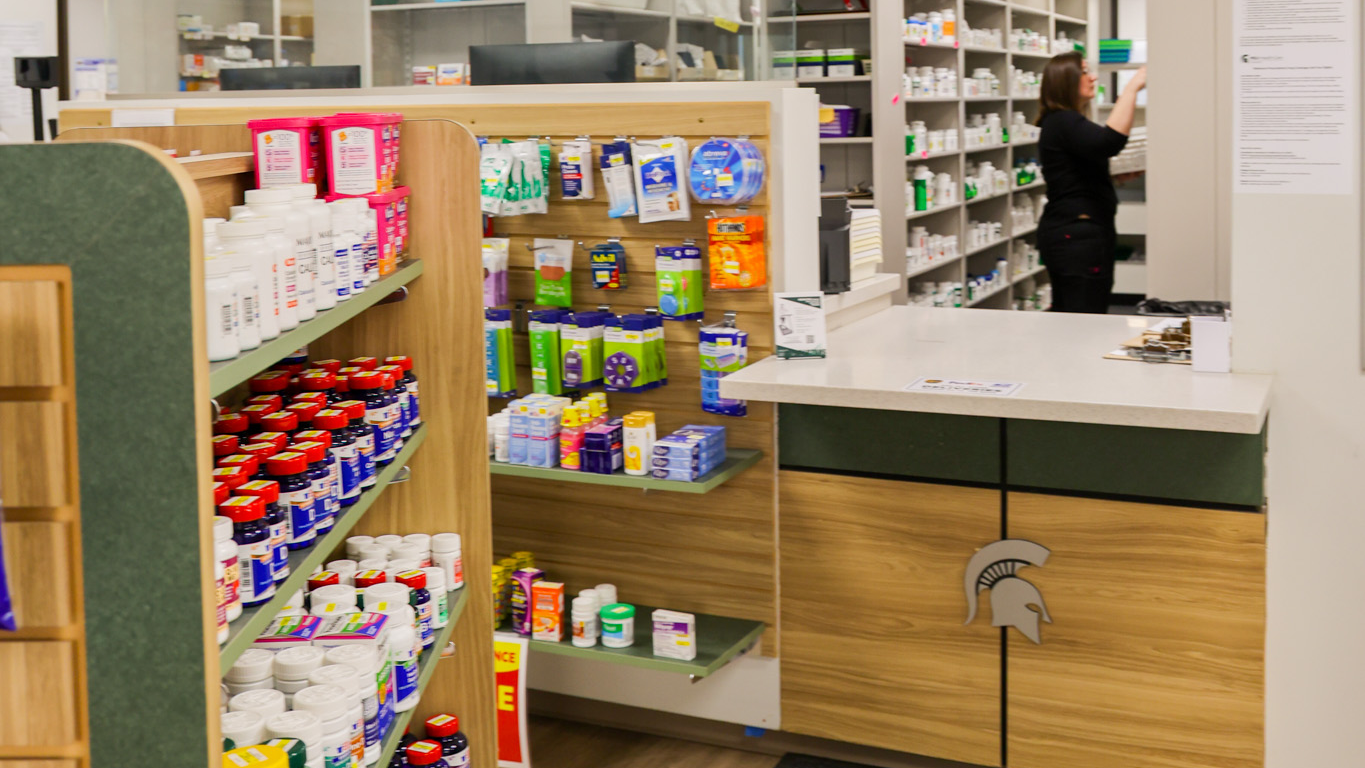Essential Things You Should Have In Your Medicine Cabinet
What are the basic things your pharmacist recommends you have in stock at home?

We've made it through another Michigan winter, and now the warm weather and sunshine have returned. It's time to venture outside for yard work, gardening, and walks in the park. However, spring also brings allergies and other ailments that come with spending time outdoors. The MSU Health Care Pharmacy wants to ensure you are prepared with a comprehensive guide to stocking your medicine cabinet or first aid kit.
We spoke with MSU Health Care Pharmacy pharmacist, Dr. Nicole Gargano, PharmD, for her recommendations on what every household should have on hand. Here is her list of essential medications and supplies:
- Acetaminophen (Tylenol) – Ideal for fevers and pain relief. Homes with children may want to keep liquid or chewable forms.
- Ibuprofen/Naproxen (Advil or Aleve) – Effective for pain, inflammation, and fever.
- Diphenhydramine liquid (Benadryl) – Recommended in liquid form as it can be used by both children and adults and is easier to swallow during serious reactions.
- Loperamide (Imodium) – Useful for managing diarrhea.
- Antacids (Tums) – Relieves heartburn and indigestion.
- Rehydration solution (Pedialyte) – Helps rehydrate during illnesses that cause dehydration.
- Hydrocortisone cream – A topical corticosteroid for redness, itching, swelling, and inflammation, great for itchy bug bites.
- Antibiotic ointment (Neosporin) – Applied to cuts and scrapes to prevent infections.
- Narcan nasal spray – For suspected overdoses, recommended in homes with children and teenagers.
- Digital thermometer – Provides quick and accurate readings to determine if someone has a fever.
- Bandages (Band-aids, gauze, and tape) – Used to cover and protect cuts and scrapes.
- Isopropyl alcohol – For cleaning and disinfecting minor cuts and scrapes.
Some households also like to keep cough suppressants, cough syrups, or decongestants. While these may be staples in your home, Dr. Gargano advises only buying these products when needed. They tend to expire before you can use them, and it's best to select medications based on the symptoms of the illness. Your doctor or pharmacist can recommend the right choices to treat acute illnesses and save you money in the long run.
Dr. Gargano emphasizes the importance of having your first aid products in a single, accessible location known to all family members. It's also crucial to keep track of your supplies. She suggests keeping a list inside your supply kit or cabinet, including expiration dates. Creams, ointments, medications, and even bandages can expire, so it's essential to ensure your supplies are up-to-date for effective emergency use.
